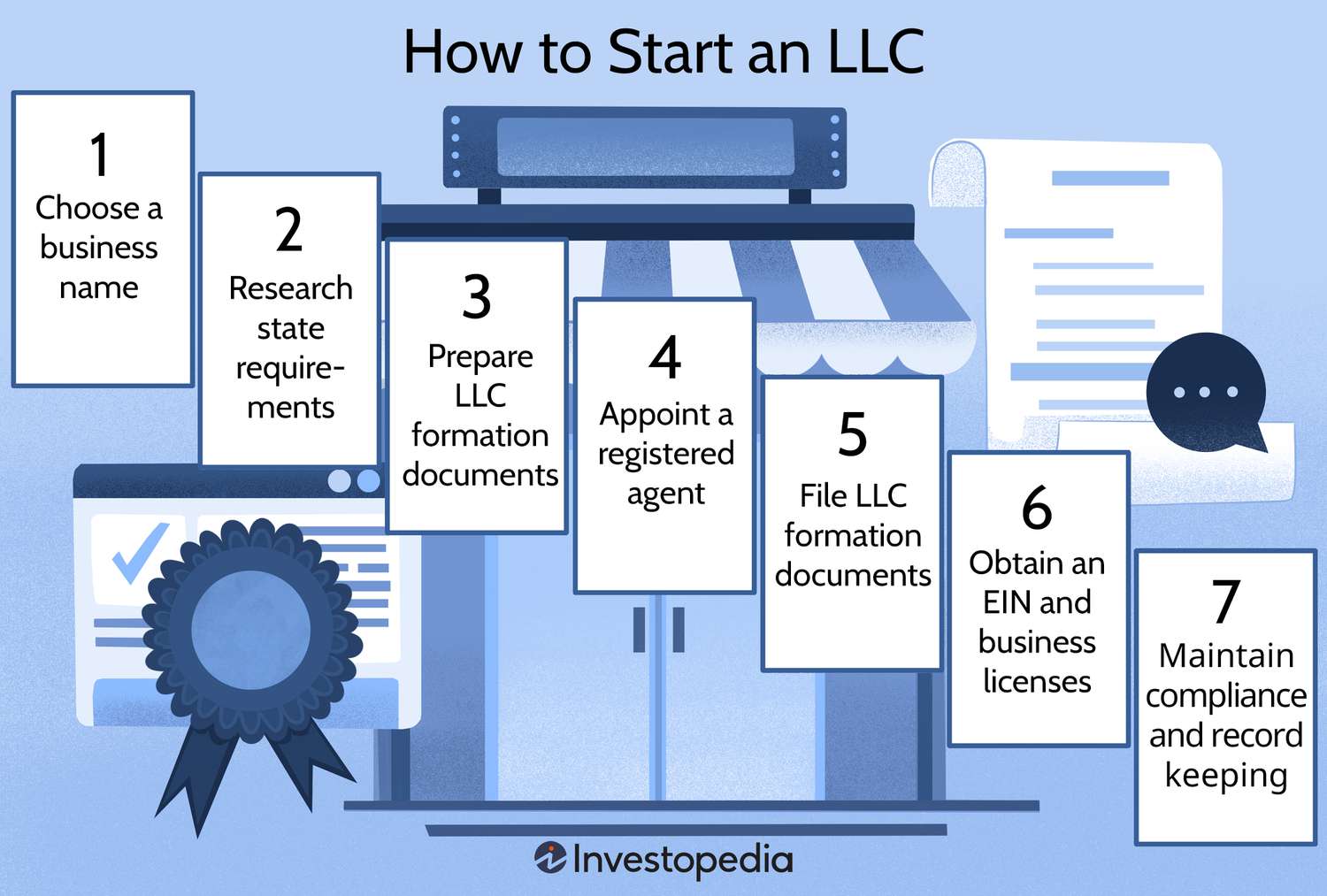Understanding LLC Formation: A Comprehensive Guide for Your Business
Starting a business is an exciting journey, yet it involves numerous legal and financial considerations. One crucial step in establishing your venture is choosing the right business structure. Forming a Limited Liability Company (LLC) is a popular choice among entrepreneurs due to its flexibility and protection. In this article, Legal Marketplace CONSULTANT aims to provide an in-depth explanation of LLC formation, its advantages, required documentation, and key considerations for ensuring your business is set for long-term success.
What is an LLC and Why Choose It?
An LLC, or Limited Liability Company, is a legal business entity that combines the liability protection of a corporation with the flexibility and tax advantages of a partnership or sole proprietorship. When you form an LLC, your personal assets, such as your home or personal savings, are separated from your business liabilities and debts. This means that, in most cases, your personal assets cannot be pursued to satisfy business obligations.
The LLC structure offers numerous benefits, including simplified management, fewer compliance requirements compared to corporations, and pass-through taxation, where profits and losses can be reported on your personal tax return, avoiding the double taxation issue commonly associated with corporations.
Key Advantages of Forming an LLC
- Personal Asset Protection: Safeguards your personal assets from business debts and lawsuits.
- Tax Flexibility: Allows you to choose how you wish to be taxed, either as a sole proprietor, partnership, S corporation, or C corporation.
- Credibility: Establishes trust with customers, suppliers, and investors due to formal business registration.
- Flexible Management: Fewer restrictions on ownership structure and management roles, allowing members to run the LLC or appoint managers.
- Ease of Formation and Compliance: Compared to corporations, LLCs generally require less paperwork and have fewer ongoing compliance obligations.
Steps to Forming an LLC
Forming an LLC involves several critical steps that must be carefully handled to ensure legality and operational effectiveness. Below is a detailed breakdown of the essential steps you need to follow:
- Choose a Unique Business Name: Your LLC’s name must comply with your state’s rules and not infringe on any trademarks or existing business names.
- File Articles of Organization: This is the official document filed with the state government to legally create your LLC. It includes basic information such as the LLC name, address, registered agent, and management structure.
- Designate a Registered Agent: A registered agent is a person or entity authorized to receive legal documents on behalf of the LLC.
- Draft an Operating Agreement: Although not always legally required, it is highly recommended to create an operating agreement to outline the management, financial arrangements, member responsibilities, and operating procedures.
- Obtain an Employer Identification Number (EIN): This federal tax ID number, provided by the IRS, is necessary for tax reporting, opening bank accounts, and hiring employees.
- Register for State and Local Taxes and Permits: Depending on your business activities and location, you may need to register for various taxes, sales permits, or professional licenses.
- Comply with Ongoing Compliance Requirements: Maintain your LLC’s good standing by filing annual reports, paying fees, and keeping thorough records.
Articles of Organization: Foundation of Your LLC
The Articles of Organization serve as the formal declaration that establishes your LLC as a recognized legal entity. This document varies in name by state—sometimes referred to as Certificate of Formation or Certificate of Organization—but it performs the same function.
When preparing this document, you typically need to provide:
- LLC name including proper designation (e.g., "LLC" or "Limited Liability Company")
- Business address and principal place of operation
- Name and address of the registered agent
- Management structure (member-managed or manager-managed)
- Duration of the LLC (perpetual or specific term)
Filing fees vary by state and usually range from $50 to $500. It's critical to complete this process accurately to avoid delays or rejections.
Operating Agreement: Governance of Your LLC
An operating agreement is a legal document that outlines the operational and financial decisions of your LLC. It specifies member roles, voting rights, profit sharing, responsibilities, and procedures for adding or removing members.
While not mandated by every state, having a comprehensive operating agreement can prevent internal disputes and clarify rules for your business’s functioning. It acts as a blueprint for managing your company and provides a structure that the courts will respect should disagreements arise.
Obtaining Your EIN: The Tax Identification Number
An Employer Identification Number (EIN) is issued by the Internal Revenue Service (IRS) to identify your business entity for tax purposes. You need an EIN if your LLC has employees, operates as a multi-member LLC, or elects to be taxed as a corporation.
Applying for an EIN is a straightforward process completed online on the IRS website, typically free of charge. This number is required for opening bank accounts, filing taxes, and handling employee payroll.
Common Mistakes to Avoid When Forming Your LLC
Starting your LLC on the right foot is crucial to avoid costly mistakes that could jeopardize your business. Here are some common pitfalls to steer clear of:
- Failing to distinguish personal and business finances, which can weaken liability protection.
- Neglecting to draft or properly customize the operating agreement, leading to management confusion.
- Not obtaining the necessary permits or licenses required by your industry or location.
- Missing tax registration deadlines or failing to understand tax obligations at the state and federal level.
- Overlooking ongoing compliance requirements such as annual reports, which can result in fines or administrative dissolution.
How Proper Legal Assistance Can Benefit Your LLC Formation
Forming an LLC might seem straightforward, but the legal nuances surrounding formation, compliance, and taxation can be complex. Seeking professional legal guidance ensures that all documents are prepared correctly, deadlines are met, and your business complies with applicable laws.
Legal Marketplace CONSULTANT offers expert legal advice tailored to your business needs. Our experienced attorneys assist with LLC formation, help draft comprehensive operating agreements, and provide ongoing support to protect your investment and future growth.
Building Credibility and Ensuring Future Success
An LLC helps establish your business as a credible legal entity, reassuring clients, partners, and lenders that you operate professionally. Setting up your LLC correctly from day one builds a solid foundation, reduces risks of tax problems, and positions your company for sustainable growth.
It is important to understand that proper formation is not just a bureaucratic step but a strategic move that impacts your business’s reputation and legal protections.
Conclusion
Forming an LLC is a vital step for many business owners seeking to protect personal assets while enjoying tax flexibility and credibility. From choosing a unique name, filing your Articles of Organization, drafting an operating agreement, to obtaining an EIN, each step should be approached with care and precision.
By avoiding common mistakes and securing proper legal counsel, you pave the way for a strong, compliant, and successful company. Remember that Legal Marketplace CONSULTANT is here to offer expert guidance through every phase of your LLC formation and beyond. Taking these steps right from day one will safeguard your future and empower your entrepreneurial dreams.
Legal Marketplace CONSULTANT provides comprehensive, professional legal services tailored to the needs of startups and established businesses. Our team includes attorneys, consultants, and tax experts dedicated to protecting your interests and supporting your business development.































